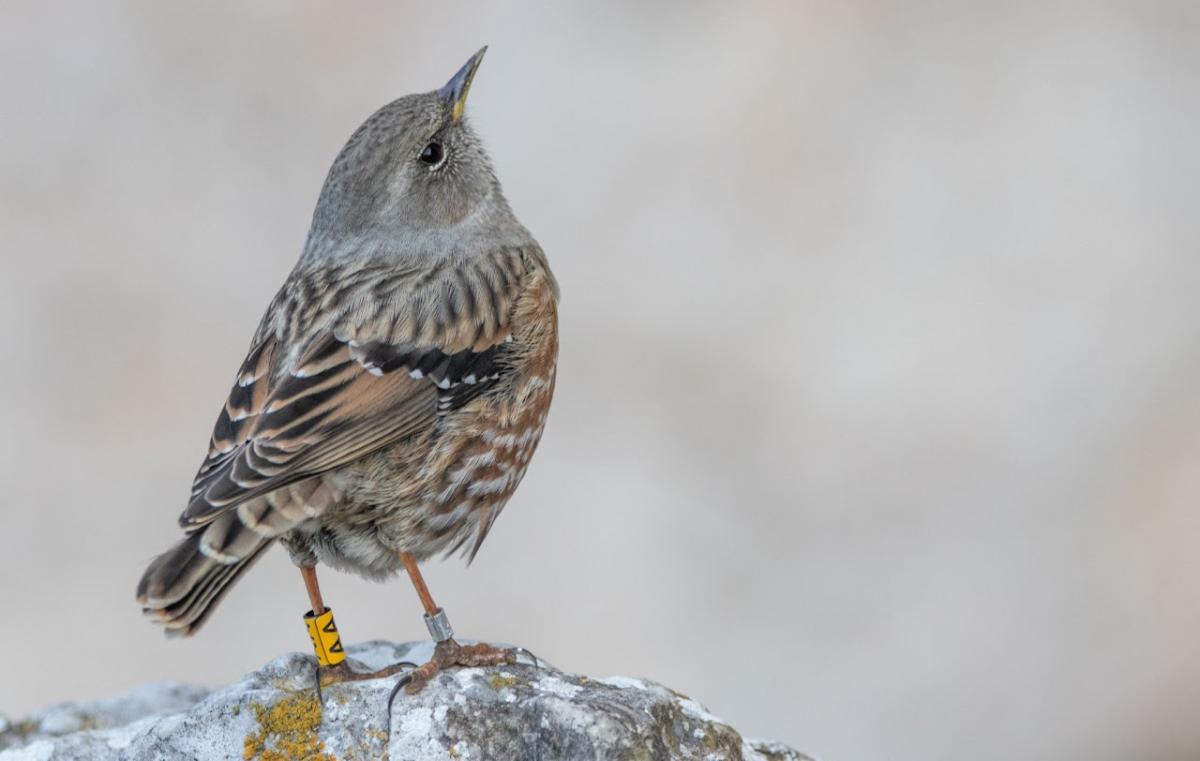EURING supports friends and colleagues in Ukraine
 EURING promotes international collaboration on all aspects of scientific bird marking. Birds do not know borders, understanding their ecology and conservation needs requires international cooperation through collaborative research, open communication and sharing of data. EURING promotes these values throughout Europe and along associated flyways, but can only do so effectively under the conditions of an open and democratic society.
EURING promotes international collaboration on all aspects of scientific bird marking. Birds do not know borders, understanding their ecology and conservation needs requires international cooperation through collaborative research, open communication and sharing of data. EURING promotes these values throughout Europe and along associated flyways, but can only do so effectively under the conditions of an open and democratic society.
EURING is a non-political organisation, but our values and work have been put under severe threat by the aggression of the Russian Federation against Ukraine. We strongly condemn the invasion of Ukraine and stand in solidarity with all those in Ukraine, Russia and elsewhere who are protesting against the violence and seeking a peaceful way forward. We hope a swift resolution to the current situation can be found in order that our activities can continue based on the goodwill, cooperation, and tolerance of all.
EURING General Meeting November 2024,
Tata, Hungary
 The 2024 EURING General meeting will take place from 5-8 November in Tata, Hungary and is being hosted by the Hungarian Ringing Scheme. Full details of the meeting arrangements and a link to the registration page are available here.
The 2024 EURING General meeting will take place from 5-8 November in Tata, Hungary and is being hosted by the Hungarian Ringing Scheme. Full details of the meeting arrangements and a link to the registration page are available here.
International Bird Ringing Photo Contest
 This nature photography contest is organized by the Ringing Scheme of the Aranzadi Sciences Society. The aim of this contest is to communicate the mission, vision and values of scientific bird ringing, so as to promote research based on bird ringing, particularly that related conservation. The closing date for submissions is 2 September 2024. For further information please vsist the competition website.
This nature photography contest is organized by the Ringing Scheme of the Aranzadi Sciences Society. The aim of this contest is to communicate the mission, vision and values of scientific bird ringing, so as to promote research based on bird ringing, particularly that related conservation. The closing date for submissions is 2 September 2024. For further information please vsist the competition website.
EURING Analytical Meeting April 2023, Montpellier, France
EURING is delighted to announce that the next EURING analytical meeting will be held in Montpellier, France from 17-21 April 2023. Further details are available on the Conference website.
EURING General Meeting October 2022, France
The 2022 EURING General meeting will take place from 4-6 October in Nantes and is being hosted by the French Ringing Scheme. We are very pleased to be able to meet in person again after a long period of online only meetings. This will be an excellent opportunity to celebrate the completion of the Eurasian African Migration Atlas and to plan future initiatives. Full details of the meeting arrangements and a link to the registration page are available here.
EURING meetings will be online in 2021
Two important EURING meetings are to be held online in view of the ongoing COVID-19 pandemic. The EURING Analytical Meeting, planned to be held at Université Laval, Québec, Canada will now take place online between Monday 31 May and Friday 11 June. Daily 3 hour sessions will be at 10am – 1pm US eastern time, 3-6pm BST and 4-7pm CET. This conference focuses on analytical methods and will include a special session on the Eurasian African Migration Atlas. See the EURING analytical conference website for full details.
The EURING General Meeting of Ringing Schemes planned for October 2021 will now take place online on the afternoons of Wednesday 6 and Thursday 7 October. A full in person meeting is now planned for 3-6 October 2022, and will be hosted by the French Ringing Scheme.
EURING Code 2020 published
The EURING exchange code facilitates collaborative research and exchange of ringing data across Europe and beyond, and is central to the operation of the EURING databank. This in turn facilitates a wide range of large-scale analyses, including the Eurasian African Bird Migration Atlas that is currently under development. A team of volunteers, led by EURING Data management Committee Chair Chris du Feu, has just published the latest version of the code. Species names are being brought into line with the current IOC taxonomy but the taxon codes themselves remain unchanged. New fields for latitude and longitude have been created which can be used as an alternative to the co-ordinates fields which are still available. The previous 2000+ code will remain completely valid in the new 2020 code. The new code builds on EURING’s previous work in the area, providing conventions that are closer to the current working practices of most ringing schemes while minimising the need for disruptive changes.
Coronavirus - implications for bird ringing
The spread of COVID-19 (Coronavirus) is already having a significant impact on the lives of everyone in our communities and will most likely continue to do so over the coming months. EURING is taking this threat extremely seriously, with utmost concern for the health and wellbeing of all those involved in bird ringing. Based on current knowledge ringing and recording birds should not directly affect the risk of exposure the COVID-19 virus and will continue to be a valuable activity at this time. There is a growing need for information from bird ringing to inform our responses to the biodiversity crisis and to climate change. However it is essential that those involved should take all necessary steps to follow the latest health guidance and to minimise personal contacts. If in any doubt ringers are advised to suspend their activities. Operational aspects of bird ringing are the responsibility of the National Ringing Schemes that operate in each country. All ringers should carefully follow the advice issued by those schemes and by appropriate regional and national authorities. In these unprecedented times please take care of yourselves and those around you.
Migration Atlas dataset completed
Over the last year EURING’s member ringing schemes have been hard at work checking and preparing data for the Eurasian African Bird Migration Atlas that is due to be published in 2020. Thanks to a huge effort by many people this impressive dataset is now complete. It contains almost 25 million encounter records of marked individuals based on resightings, recaptures by ringers and dead birds reported by the public. The Atlas will map the migration routes of some 300 species and provide information on migration periods, migratory connectivity, illegal killing of birds and changing migration patterns. The dataset will also support a wide range of other research.
Advances in modelling demographic processes
The proceedings of the EURING 2017 Analytical Meeting and Workshop have been published as a special issue of Methods in Ecology and Evolution and Ecology and Evolution. Edited by Rob Robinson and Beth Gardner these proceedings bring together a series of 16 papers demonstrating cutting edge statistical methods and their application to a range of issues relevant to data from bird ringing and related ecological fields. Topics covered include mark-recapture and mark-recovery analysis, integrated population modelling, movement analyses and occupancy modelling. More information on this highly productive series of conferences is available here.



